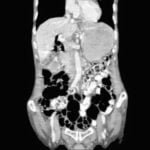| Student corner: Contributed by Ms Aaliya Masoodi Pineapple (Ananas comosus) pineapple is abundant and one of the most mandatory commercial fruit crops in the world. It is also known as the queen of fruits due to its mesmerizing flavor and excellent taste. After Banana and Citrus Pineapple is the third most important tropical fruit in the world. Pineapples are consumed or served fresh, cooked, juiced, and can be preserved. This fruit is highly perishable and seasonal. Food values : The Mature pineapple fruit contains 14% of sugar; a protein-digesting enzyme, bromelin, and a good amount of citric acid, malic acid, and vitamins A and B PINEAPPLE AS FOOD:- Pineapple fruits exhibit high moisture, high sugars, soluble solid content ascorbic acid, and low crude fiber. Thus pineapple can be used as supplementary nutritional fruit for good personal health. The pineapple fruits are normally consumed fresh or as fresh pineapple juice. Field-ripe fruits are best for eating fresh, and it is only necessary to remove the crown, rind, eyes, and core. Pineapples may be consumed fresh, canned, or juiced, and are found in a wide array of foodstuff -dessert, fruit salad, jam, yogurt, ice cream, candy, and as a complement to meat dishes. Various other ways like in pies, cakes, puddings, as a garnish on ham, or made into sauces or preserves. 
MEDICINAL USES OF PINEAPPLE:- - Pineapple can be used as supplementary nutritional fruit for good personal health. Pineapple fruits are an excellent source of vitamins and minerals.
- One healthy ripe pineapple fruit can supply about 16.2% of the daily requirement for vitamin C. Vitamin C is the body’s primary water-soluble antioxidant, against free radicals that attack and damage normal cells. A powerful antioxidant, vitamin C supports the formation of collagen in bones, blood vessels, cartilage, and muscle, as well as the absorption of iron. Vitamin C also retards the development of urinary tract infections during pregnancy and reduces the risk of certain cancers, including the colon, esophagus, and stomach.
- Malic acid makes up 13 percent of pineapple juice’s acidic content. Malic acid is also beneficial for health. It boosts immunity; promotes smooth, firm skin; helps maintain oral health, and reduces the risk of toxic metal poisoning.
- Pineapple is also a good source of vitamin B1, vitamin B6, copper, and dietary fiber.
- Pineapple is a digestive aid and a natural anti-inflammatory fruit.
- Fresh pineapples are rich in bromelain and used for tenderizing meat. Pineapple contains the proteolytic enzyme bromelain, which digests food by breaking down protein. Only modest quantities of bromelain are in the edible parts of the fruit, all commercially available bromelain is derived from the stem. Bromelain supplements are particularly popular among athletes for treating all sorts of physical aches and injuries.
- Drinking pineapple juice can help hydrate the body and restore the immune system. It helps to build healthy bones.
- Pineapples are rich in manganese, a trace mineral that is needed for the body to build bone and connective tissues.
- One cup of pineapple provides 73% of the daily recommended amount of manganese. The benefits of pineapple can affect the growth of bones in young people and the strengthening of bones in older people. Pineapple juice’s high manganese content means it is a good choice for boosting fertility through sperm quality.
- Bromelain has demonstrated significant anti-inflammatory effects, reducing swelling in inflammatory conditions such as acute sinusitis, sore throat, arthritis, and gout and speeding recovery from injuries and surgery.
- Pineapple enzymes have been used with success to treat rheumatoid arthritis and to speed tissue repair as a result of injuries, diabetic ulcers, and general surgery.
- Pineapple reduces blood clotting and helps remove plaque from arterial walls. Pineapple enzymes may improve circulation in those with narrowed arteries, such as angina sufferers.
- Pineapples are used to help cure bronchitis and throat infections. Pineapple is an excellent cerebral toner; it combats loss of memory, sadness, and melancholy. For any kind of morning sickness, motion sickness, or nausea, drinking pineapple juice is advised. It works effectively in getting rid of nausea and vomiting sensations.
- Pineapple is known to be very effective in curing constipation and irregular bowel movement. This is because it is rich in fiber, which makes bowel movements regular and easy.
- Pineapple is effective in getting rid of intestinal worms and also keeps the intestines and kidneys clean. It helps prevent gum disease and also prevents the formation of plaque, thus keeping the teeth healthy.
- The flesh of very young (toxic) fruits is deliberately ingested to achieve and as a drastic treatment for venereal diseases.
- One of the best-known properties of pineapple is as a diuretic. This helps to eliminate toxins through the urine, helping patients with ailments of the kidneys, bladder, and prostate.
- Due to the fiber content of the pulp, pineapple prevents constipation and regularizes the intestinal flora. Furthermore, there is evidence of appetite reducer, heart protection, and aid for fever, sore throat, mouth aches, and inflammation.
- Lightly boiled ground pineapple can be used to clean infected wounds because it eliminates dead tissues, not affecting live tissue, and acts as a disinfectant.
View in browser :The Health Guide Contribute an article Join the mailing List of The Health Guide |





